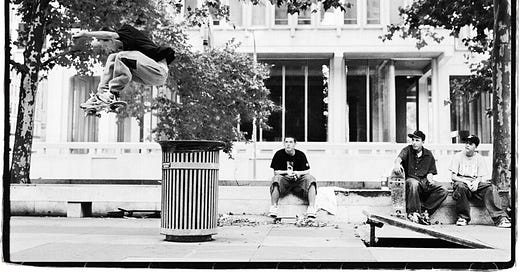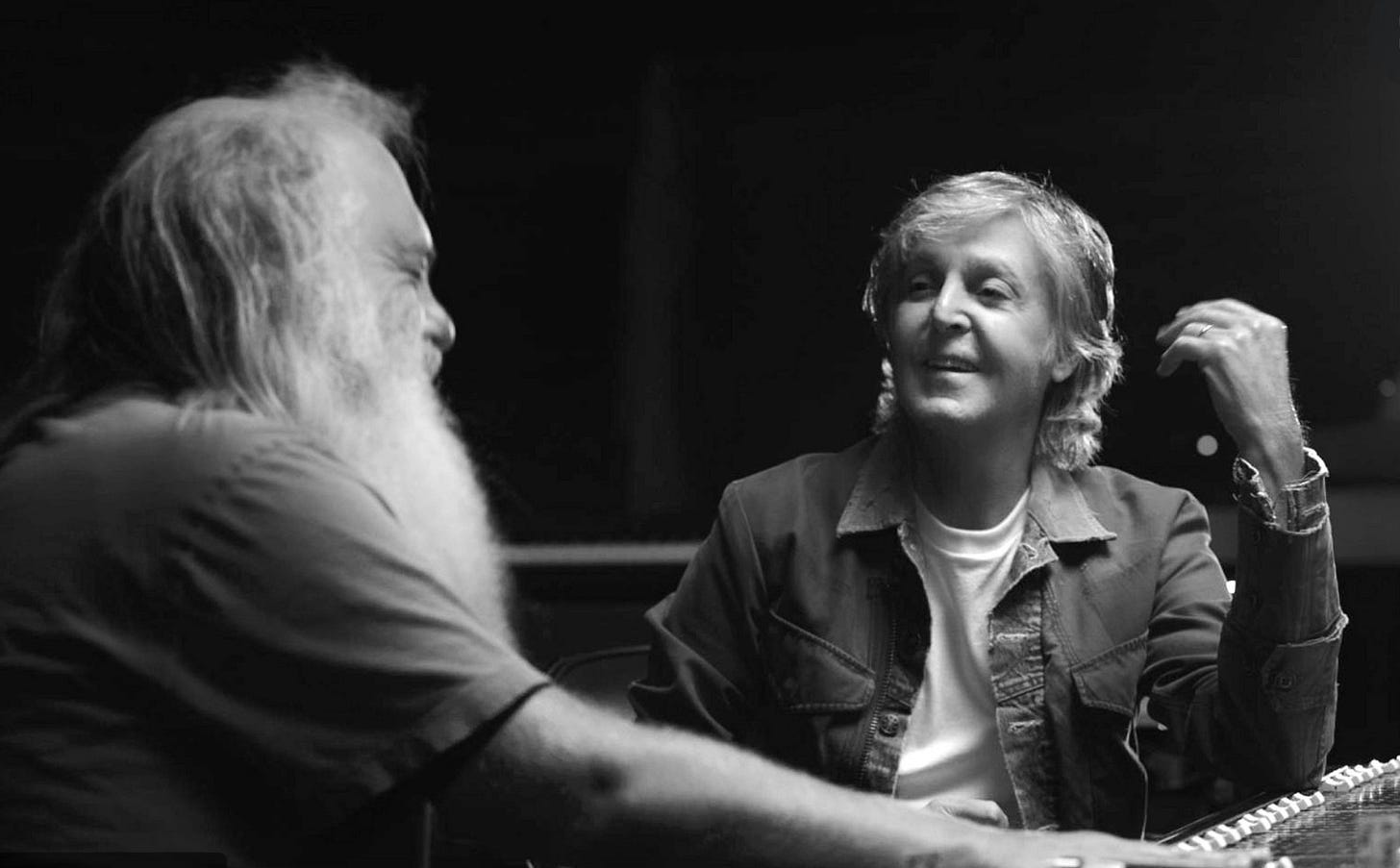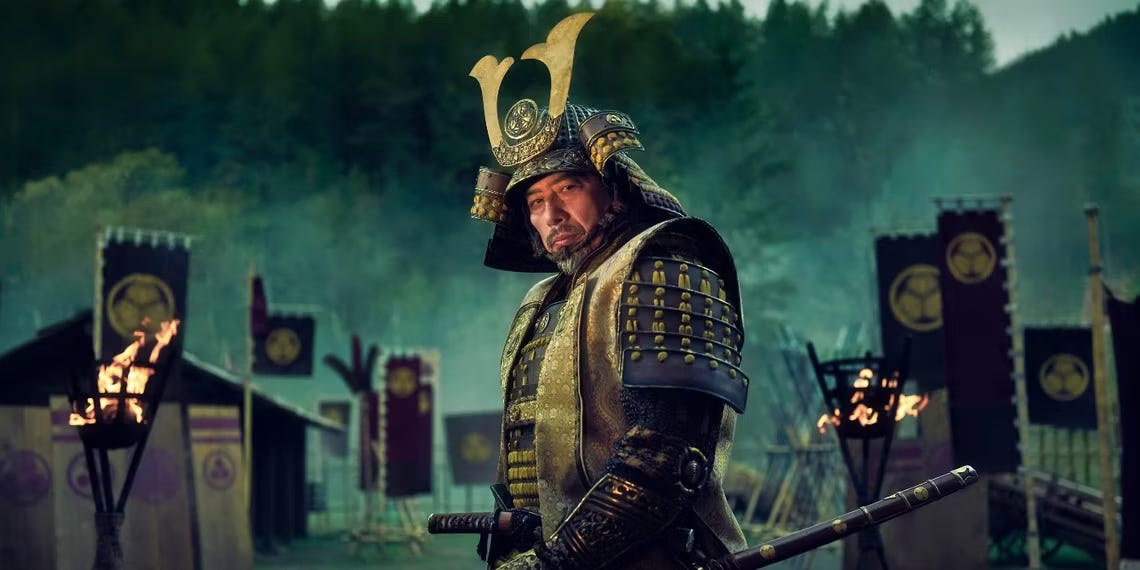R/T 020 - Play More
This issue of Radical Things is about: The importance of play for creativity.
Life has been getting in the way of writing lately.
Sometimes you have to deal with what life throws at you and do the best you can. I’m being kind to myself so not getting too hung up about it. But thanks for sticking around in the meantime.
Starting this newsletter was always an experiment. A journey to find my own path. So I’ve been pondering what I really want to write about. And how it will be valuable to you - the reader.
They say “A change is as good as a rest.” I’ve never met them, but it sounds like good advice. So my renewed focus is creativity. Specifically “Helping you be more creative in life and work”. It also feels like a natural progression from what I’ve been writing about in previous issues.
So not a massive change really, but increased focus means more value for you.
Now, don’t mistake creativity for “being artistic”. No matter if you’re a lawyer, designer, writer or astrophysicist - creativity is crucial to success. It’s also what makes us human.
In a world of synthetics and AI who doesn’t need more of that?
I help you enjoy this format and content experiment. Let me know with a comment or like.
Now, I encourage you to Play More!
Play More
If you want people to solve hard problems, create things of value to others and be happier in general - create environments that enable play. This means nurturing a culture that welcomes play and values it as a driver for creativity.
To make playfulness a reality, you have to fly in the face of advice about productivity.
Play doesn’t happen through grinding out hours behind a screen. It happens when we set ourselves free of certain constraints and beliefs about work.
And when I talk about play I’m not talking about ping-pong tables and bean bags. Like every image conjured by the latest start-up. I mean a culture of playing with ideas, engaging in thought experiments and creating space for intellectual exploration.
Don’t Stop Being Childish
Let me ask you a question: When was the last time you were told to “grow up”?
There’s a weird phenomenon that as we mature in years, we’re expected to be more serious. Serious about life, our work and our future. If you’re not being serious about what you do, how are you going to succeed and achieve your goals?
I’ve got a signed still of a photo from this sequence by Mike Blabac
I’m (ahem) well into my forties. But I’ve been a skateboarder since around nine years old. Even when I was a teenager I was told to grow up get off my skateboard.
Skateboarding has been an important part of my life for as long as I can remember. It’s helped me remain creative as I’ve grown older. There’s so many facets to skateboarding as a culture. Tricks, terrain, clothes, music, film-making, photography and building. It’s fertile ground for creativity.
It’s unsurprising to me how many in middle-age are rediscovering the mental health benefits of skateboarding.
I’m eternally greatful that I can still enjoy skateboarding. But I’m also thankful to myself that I didn’t listen to everyone in the past 40 years that have told me to “grow up”.
A Lesson From The Beatles
Rick Rubin’s recent documentary about Paul McCartney is a treatise on creativity and play. Across the eight parts series Paul McCartney constantly references the notion of play.
The Beatles couldn’t read or write music. They knew chords and structure. They would learn individually and share them with the group. Rearranging them to build their iconic songs.
They were all students of music history. They could explain their musical ideas by referencing other artists, records and sounds. This enabled them to communicate intuitively without the skill of reading music.
A screenshot from McCartney 3,2,1 on Disney +
This all comes together when they’re jamming. This process and an intimate understanding of each other enables creativity to take hold.
There’s also elements of fun and childishness. Lennon and McCartney are constantly making jokes, talking in funny voices and performing impressions. You often hear this playfulness captured across their albums.
This is also creative leadership at its best. They’re creating the environment for joyful experimentation. They’re also giving other band members permission to engage their creativity by modelling desirable behaviours.
Playful Sparring
In many combat sports, sparring is often an excuse to try and beat the shit out of someone. I experience this myself as a kid learning karate.
But in some pockets of Muay Thai, sparring is a playful exercise.
One of the only videos I could find of playful fluid sparring in Muay Thai
The type of playful sparring that you can see in the video above has a few advantages:
Fighters are much less likely to get injured. Power is reduced and you don’t get hit full force. You’re more likely to be fit for fight night increase your career longevity if you’re not being constantly battered in training.
This type of sparring increases fluidity and enables technique to be honed. You can take more risks with light contact. And with repetition - be better prepared to counter opponents attacks.
It increases willingness to experiment. If you’re less likely to get injured, trying new things isn’t as intimidating. Through experimentation you increase creativity and adaptability.
And adaptability is critical for success in any competitive challenge. This is also the foundation for any good strategy.
If You Want To Be More Creative - Play More
Play is critical for creativity to flourish. But we often work environments where play is frowned upon or discouraged.
Employers demand staff to solve hard problems using creativity. They also want you to be more creative in your work. Yet they often miss the link between creativity and play.
If you want your employees to be more creative then enable safe environments where play is encouraged, not just tolerated. This doesn’t have to mean providing bean bags and an “innovation room”. It does mean modelling playful behaviours and encouraging the type of playful practices that enable creativity.
If you want to be more creative in life - be more playful. It really doesn’t matter how this happens. Whether it’s having more fun with your kids or doing something you perhaps have “grown out of”.
Being playful is really about discovering joy. That’s something we should celebrate and encourage in everyone.
Watch
I’ve been fascinated by Eastern cultures since I was a kid. Naturally, I was watching Shōgun as soon as it came out on Disney+. Waiting patiently every Tuesday for the next episode to pop up.
It’s an epic romp across 17th Century Japan. It’s full of beautiful costumes, cultural insights, intrigue and brilliant acting. A visual feast that has you wanting more each episode.
91% on Rotten Tomatoes says I’m right and you should watch it.
Now it’s done it’s left a gaping hole in my viewing pleasure. But it’s been criticised online for how it’s been filmed. So here’s a great article on Shōgun’s visual style and creative choices in filming by Mark Llobrera.
Listen
Drum N’ Bass is going through a modern renaissance. Pushed by a new generation of producers who are exploring the overlaps between Dubstep and Grime. This popped up on a Chase and Status mix at Brooklyn Banks in New York. I’d heard it floating around the internet, so it was great to get the track listing.
Here’s Taiki Nulight talking about on creating his last album.
Read
Fashion Play.
Glasgow-based illustrator and animator Lesley Barnes invites you to mix and match outfits in a playful manner in her new interactive book.
The are reasons why your team is not listening to you.
But if your senior management team is ignoring you, it is probably not because they are stupid.
To be a designer is to be facilitator.
Building a shared understanding of complex issues is key to doing work in the social impact space.
What is the state of design?
Me ole’ mate Julian Bleecker adds his two cents (or pennies, depending on your preference.)
‘Why build AI at all?’
Sarah Myers West says we should ask this question in the recent TechCrunch series - Women in AI.






